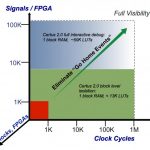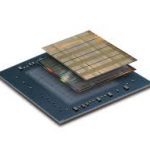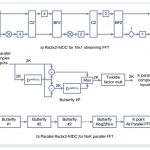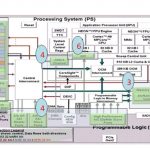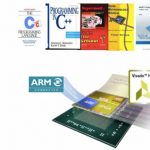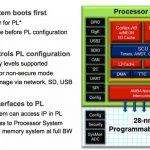ASIC prototyping in FPGAs is starting to trend on SemiWiki. As FPGA technology becomes more advanced customers tell me that the traditional debug tools are inadequate. Faced with the very restrictive debugging capabilities and very long synthesis/place/route times the debugging cycle in these prototype platforms are quite… Read More
Tag: fpga
Reduce Errors in Multi-threaded Designs
Many advanced algorithmic IPs are described in C++. We use this language because of its flexibility. Of course software algorithms are written to be executed on processors so they don’t solve all the issues of getting the algorithm implemented in hardware directly. This is not simply a high-level synthesis (HLS) issue. Usually… Read More
FPGAs – The Possibilities are Endless – Almost
Has your wife ever said “Your name, I’m not a computer”? Well maybe mine has. I know what you are thinking… This guy is married? Yup, I over achieved too. Have child #7 on the way Lord willing, so you probably guessed I don’t follow much of the world’s planning and such. Like you, no one in my house really understands what I do, nor cares … Read More
Gigahertz FFT rates on a 500MHz budget
A basic building block of any communication system today is the fast Fourier transform, or FFT. A big advantage of FPGA implementations of FFTs is they can be scaled and tuned for the task at hand, optimizing data flow, resource use, and power consumption. Scaled, that is, up to the clock speed of the FPGA – or so it would seem.
Today’s… Read More
A bird told me the EDPS Monterey Conference was a great success
The 20th annual Electronic Design Process Symposium (EDPS) held April 18-19 at the Monterey Beach Hotel in Monterey California was an unqualified success. I know this because a bird (seagull?) sitting on the window sill of the conference room was so captivated by the fascinating insight provided by a number of luminaries that … Read More
FPGAS – The New Single Board Computers?
I have always felt that FPGAs have been the red haired step child of Silicon Valley. Software weenies have hated them, they are mysterious and take too long to route. Even though they can be massively parallel and the most deterministic piece of silicon you can buy besides a million dollar ASIC, the GPU steals their glory, for now. … Read More
Xilinx: Hide the RTL
Tom Feist of Xilinx presented here at the GlobalPress Electronics Summit about their strategy to take design abstraction up another level. In the SoC world, we are still pretty much stuck at the RTL level and have moved to higher abstractions by using an IP strategy. But at least all IC designers are RTL-literate.
Xilinx, in the Vivado… Read More
Altera, Intel, TSMC, ARM: the Plot Thickens
Vince Hu of Altera presented us her at the GlobalPress Electronics Summit on their process roadmap. Since just a month or two ago they announced that Intel would be their foundry at 14nm, everyone wanted to get a better idea of what was really going on.
At 28nm, Altera use 2 processes, TSMC 28HP (for high end Stratix-5 devices) and TSMC… Read More
Webinar: Making a Simple, Structured and Efficient VHDL Testbench
Most simple testbenches have close to no structure, are terrible to modify and hopeless to understand. They often take far too much time to implement and provide close to no support when debugging potential problems. This webinar will demonstrate how to build a far better testbench with respect to all these issues – in significantly… Read More
Ivo Bolsens’ Keynote on the All-Programmable SoC
Ivo Bolsens, the CTO of Xilinx, is giving the opening keynote at the Electronic Design Process Symposium (EDPS) in Monterey on Thursday and Friday this coming week. The title of his keynote is The All Programmable SoC – At the Heart of Next Generation Embedded Systems. He covers a lot of ground but the core of his presentation… Read More


